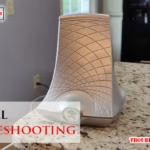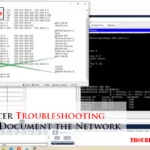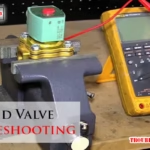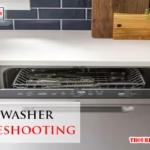Imagine it’s a sunny day, perfect for a swim, but your pool pump is acting up. Frustrating, right?
If you’re facing issues with your Pentair pool pump, you’re not alone. Many pool owners encounter challenges, from odd noises to poor circulation. But don’t worry, this guide is here to help you. Whether it’s a simple fix or something more complicated, understanding the problem is the first step.
We’ll walk you through common troubleshooting tips, empowering you to get your pool back in action. Dive into the solutions and reclaim your perfect pool day.
Common Pump Problems
Pool owners often face common issues with their Pentair pool pumps. Understanding these problems helps maintain the pump’s performance. Regular maintenance can prevent most issues, but some problems may still occur.
Noisy Operation
A noisy pump can be a sign of trouble. It often means air is trapped in the pump. Check for leaks in the suction line. Tighten any loose fittings. Noise can also result from worn bearings. Replace them if needed to reduce noise.
Pump Not Starting
A pump that won’t start can be frustrating. First, check the power supply. Ensure the pump is plugged in. Inspect the circuit breaker for any trips. Faulty wiring may also be the cause. Consider hiring an electrician for electrical issues.
Low Water Flow
Low water flow can affect pool cleanliness. Blockages in the pump basket often cause this. Clean the basket regularly. Clogged filters can also restrict water flow. Cleaning or replacing the filter may solve the problem.
Pump Overheating
Pump overheating can cause damage. Ensure the pump has proper ventilation. Blocked vents can lead to overheating. Check for debris around the pump. Excessive heat may also indicate motor issues. A professional may be needed for motor repairs.
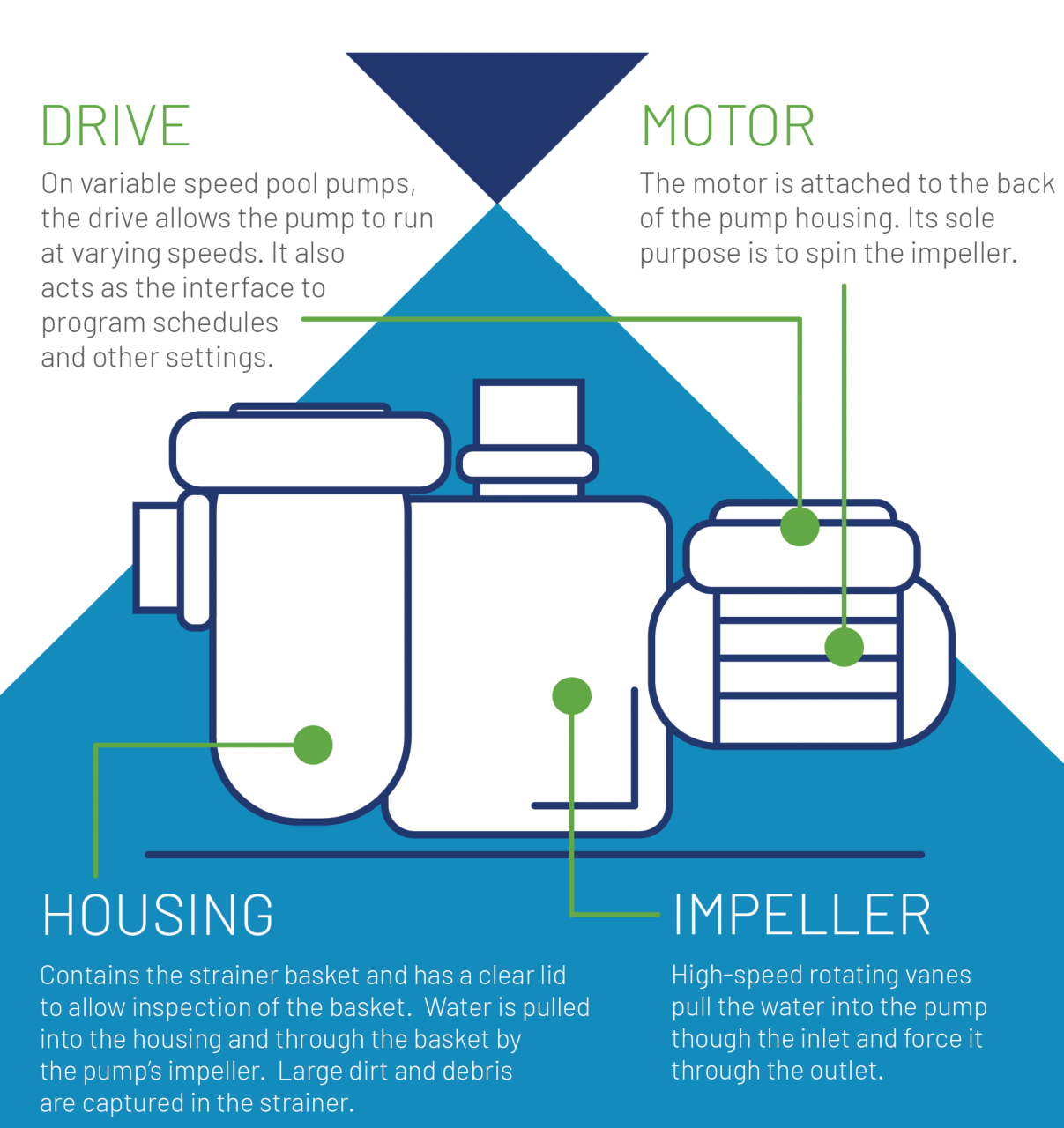
Credit: www.pentair.com
Tools And Equipment Needed
Having the right tools makes Pentair pool pump troubleshooting easier. Proper equipment ensures efficient repairs, saving you time and effort.
Basic Tools
Start with a screwdriver set. Different sizes help with various screws on the pump. Pliers are essential for gripping and twisting wires or small parts. A wrench set fits different nuts and bolts. Make sure to have both adjustable and fixed sizes. A multimeter checks electrical connections. It measures voltage, current, and resistance. A flashlight is crucial. It helps you see into dark areas of the pump. Safety goggles protect your eyes from debris. Always wear them when working on the pump.
Specialized Equipment
A vacuum gauge measures suction pressure. It helps identify blockages. A stethoscope listens for unusual sounds. Detect internal pump issues early. A thermal camera identifies overheating parts. Shows temperature differences in real-time. A pressure tester checks water pressure. Ensures proper flow through the system. A leak detector finds hidden leaks. Uses special dye or gas to locate issues. A pump puller extracts the pump from its housing. Makes removal and replacement hassle-free.
Diagnosing Electrical Issues
Diagnosing electrical issues with your Pentair pool pump is crucial for maintaining its optimal performance. Electrical problems can disrupt your pool’s filtration system, leading to potential hazards or damage. It’s essential to pinpoint these issues swiftly and accurately to ensure your pump runs smoothly and efficiently. Let’s dive into some practical steps you can take to diagnose and resolve electrical hiccups.
Checking Power Supply
First, ensure your pool pump is receiving adequate power. Check the circuit breaker and fuse box. Is the breaker tripped or a fuse blown? Reset the breaker or replace the fuse if needed. This simple step can often resolve power-related issues.
You might find that your pump isn’t starting up or it suddenly stops working. This could be due to a faulty power supply. Make sure the plug is properly inserted into the outlet. Sometimes a loose connection can cause intermittent issues.
Consider using a voltage tester to check the outlet’s power. It’ll quickly tell you if the outlet is delivering the necessary voltage for the pump. This tool can be a lifesaver, especially if you suspect fluctuating power levels.
Inspecting Wiring Connections
Next, examine the wiring connections. Look for any signs of wear or damage. Frayed wires can lead to short circuits or power loss. Carefully check the wires leading to the pump for any visible damage.
Ensure all connections are secure. Loose wires can lead to erratic performance. Tighten any connections that appear loose. It’s surprising how a small adjustment can restore functionality.
Use a continuity tester to verify the electrical pathways. This can help identify broken circuits. A simple test can reveal unseen issues that might be causing your pump to malfunction.
Testing Motor Functionality
If the power supply and wiring are intact, focus on the motor. Listen for unusual sounds during operation. Grinding or humming noises can indicate motor problems. These sounds often signal internal issues that need attention.
Check the motor’s temperature. Is it overheating? Overheating can lead to motor failure. Ensure adequate ventilation and consider cleaning any blockages that might be hindering airflow.
Use a multimeter to test the motor’s electrical resistance. This will help you determine if the motor is functioning correctly. It’s a quick way to assess motor health and pinpoint electrical problems.
Have you ever faced a situation where your pool pump suddenly stopped working during a hot summer day? Diagnosing electrical issues doesn’t have to be a daunting task. By following these steps, you can save time and potentially avoid costly repairs. Remember, regular checks can prevent most electrical mishaps. What’s your experience with diagnosing electrical issues in pool pumps? Share your thoughts in the comments below!
Addressing Mechanical Failures
Fixing mechanical failures in Pentair pool pumps can enhance their lifespan and efficiency. Simple troubleshooting steps often resolve common issues, ensuring smooth operation. Regular maintenance helps prevent future problems.
Addressing mechanical failures in Pentair pool pumps can enhance their lifespan. Mechanical issues often affect the pump’s efficiency and functionality. Recognizing these problems early ensures smooth operation. Let’s explore some key areas to troubleshoot.Inspecting The Impeller
The impeller is crucial for moving water through the pump. A clogged or damaged impeller reduces water flow. Remove the pump cover carefully. Check for debris blocking the impeller. Clean it thoroughly to improve performance. Ensure the impeller spins freely. If it’s damaged, consider replacement.Seal And Gasket Replacement
Seals and gaskets prevent water leaks. Over time, they wear out and need replacing. Check for visible cracks or signs of wear. Leaks around the pump housing indicate seal issues. Replace worn-out seals promptly. Use high-quality gaskets for a tight seal. Proper sealing enhances pump efficiency.Bearing Examination
Bearings support the smooth rotation of the motor shaft. Listen for unusual noises during operation. Grinding or squealing sounds indicate bearing problems. Inspect bearings for rust or wear. Replace faulty bearings to prevent further damage. Lubricate new bearings for optimal performance. Regular maintenance extends the pump’s life.Troubleshooting Water Flow Problems
Experiencing water flow problems with your Pentair pool pump can be frustrating. Whether you’re a seasoned pool owner or a newbie, understanding how to troubleshoot these issues is crucial for maintaining a clear and inviting pool. Tackling water flow problems involves identifying clogs, air leaks, and evaluating the filter system. Let’s dive into practical solutions that can help you regain optimal water circulation.
Clearing Clogs
Clogs are often the culprits behind sluggish water flow. Leaves, debris, or even small toys can block the pump impeller or skimmer basket. Have you noticed your pool’s water level dropping unexpectedly? Check the skimmer basket first. Remove any visible obstructions and clean it thoroughly.
Don’t forget the pump impeller. It’s common for debris to get stuck here, reducing efficiency. Turn off your pump, open the pump housing, and inspect the impeller for blockages. A simple clean-up can restore the flow in no time.
Checking For Air Leaks
Air leaks in the system can lead to reduced water flow and pump performance. You might hear a gurgling noise or notice air bubbles in the pool. These are tell-tale signs of air leaks.
Inspect the pump lid and O-ring for wear and tear. A cracked or worn O-ring can allow air to seep in. Replacing it is an easy fix. Also, ensure the pump lid is tightly sealed after each maintenance session.
Evaluating Filter System
A faulty filter system can impede water flow significantly. Is your filter pressure unusually high? This indicates a clogged or dirty filter. Regular backwashing or cleaning can keep your filter in top shape.
Consider the filter type too. Sand filters might require periodic replacement of the sand. Cartridge filters need regular washing or replacement. Understand your filter’s maintenance needs to prevent water flow issues.
Have you ever thought about how these small fixes can save you from expensive repairs? Regular maintenance not only ensures smooth operation but also extends the lifespan of your pool pump.
What strategies do you employ to keep your pool pump running smoothly? Share your experiences and tips. Your insights might be just what someone else needs to solve their water flow problems!
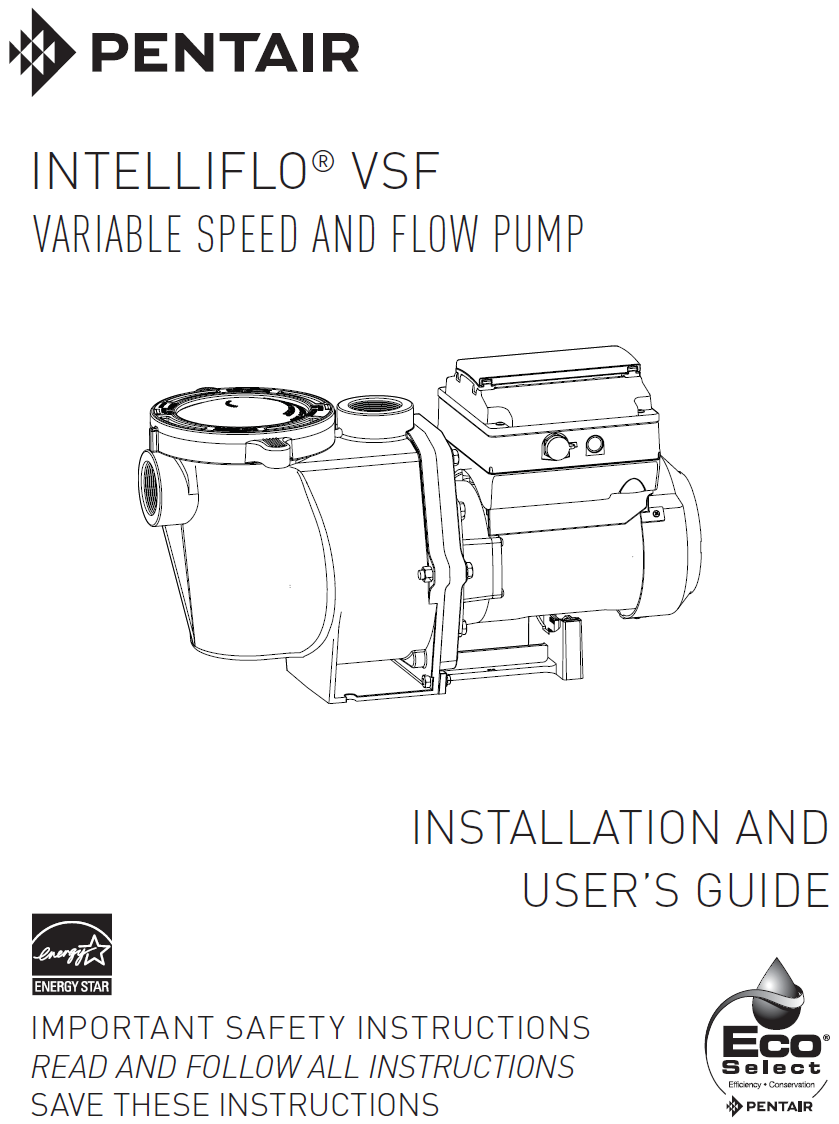
Credit: www.thepoolsupplywarehouse.com
Preventive Maintenance Tips
Keeping your Pentair pool pump in top shape ensures your pool stays pristine and inviting. Preventive maintenance isn’t just about fixing problems when they arise; it’s about stopping them before they start. These simple yet effective tips will help you maintain your pump, save money, and extend its life.
Regular Cleaning
Debris can clog your pool pump, reducing its efficiency and lifespan. Clean the pump’s strainer basket weekly to prevent blockages. If you’ve ever found yourself stuck with a slow-draining sink, you know how frustrating a clogged system can be. The same goes for your pool pump, so make cleaning a regular habit.
Also, check around the pump for any leaves or dirt that might accumulate. A quick sweep can prevent debris from entering the system. Have you ever considered how much time you spend clearing leaves from your yard? It’s the same concept—regular attention can prevent a bigger job later on.
Scheduled Inspections
Schedule inspections at least once a month. Look for any signs of wear or damage. Are there cracks in the casing? Do you notice any unusual noises? Identifying these issues early can prevent costly repairs down the line.
Consider keeping a maintenance log. It helps track any changes or recurring issues with your pump. When was the last time you checked your car’s oil? Think of these inspections as your pool pump’s version of an oil change.
Lubrication Practices
Lubrication is vital to keep the pump running smoothly. Check your user manual for specific parts that need lubrication and the type of lubricant to use. Have you ever tried running a squeaky door without oiling its hinges? It’s a simple fix that makes a world of difference, just like with your pool pump.
Apply lubricant to the necessary parts every six months. This practice will reduce friction and wear on the pump. What if you could extend the life of your pump with just a few minutes of maintenance? That’s the power of proper lubrication.
By integrating these preventive maintenance tips into your routine, you ensure your Pentair pool pump operates at peak performance. What steps will you take today to maintain your pool pump and enjoy a trouble-free swimming season?
When To Call A Professional
Owning a Pentair pool pump can be a joy, but it occasionally throws curveballs your way. Knowing when to tackle these issues yourself and when to call a professional is crucial. While some problems can be fixed with a quick adjustment or replacement, others require expert intervention. It’s important to recognize the signs that signal you need professional help, ensuring your pool remains a safe and enjoyable haven.
Identifying Complex Issues
Not all pool pump problems are straightforward. If your pump is making unusual noises, failing to start, or showing signs of electrical issues, it might be time to reach out for expert assistance. Complex problems can often be masked by seemingly minor symptoms. A persistent leak or a sudden drop in water pressure can be indicators of deeper issues. You might find yourself wondering, “Is this something I can handle, or should I call someone?”
Consider the cost of DIY repairs gone wrong. You might save money initially, but a botched repair can lead to more expensive fixes later. Professionals have the training and tools to diagnose and resolve intricate problems efficiently.
Safety Considerations
Your safety should always be a top priority. Pool pumps involve electrical components, and tampering with them can be hazardous. If you’re not confident in your ability to safely navigate these elements, it’s wise to call a professional. Remember, water and electricity are not friends!
Handling chemicals and electrical devices requires specific knowledge. Without it, you could risk injury or further damage to your pump. Don’t let a simple DIY attempt turn into a nightmare scenario. Is your peace of mind worth risking?
Think about your comfort level with tools and electrical systems. If you’re unsure, err on the side of caution and consult an expert.
Ultimately, calling a professional is about safeguarding your investment and ensuring the longevity of your pool pump. When in doubt, trust those who have the expertise to get your pump back on track safely and efficiently.

Credit: www.youtube.com
Frequently Asked Questions
Why Is My Pentair Pool Pump Not Turning On?
Check for power supply issues. Verify if the circuit breaker is tripped or the fuse is blown.
How Do I Fix A Noisy Pentair Pool Pump?
Inspect for loose parts or debris. Tighten screws and clear debris from the impeller to reduce noise.
What Causes My Pentair Pump To Lose Prime?
Air leaks or clogs can be the reason. Ensure the pump lid is tight and check for blockages in the line.
Why Is My Pentair Pool Pump Leaking Water?
Commonly caused by worn-out seals. Replace the shaft seal or O-rings to stop the leak.
How Often Should I Clean The Pentair Pump Filter?
Clean the filter every 1-2 weeks. Regular cleaning ensures efficient operation and prolongs pump life.
Conclusion
Fixing a Pentair pool pump doesn’t have to be hard. Start by checking common issues. Listen for strange noises. Inspect for leaks. Ensure the power supply works. Clean the filters regularly. These simple steps can solve many problems. Don’t let a broken pump ruin pool fun.
Maintain it well for a worry-free swim season. When in doubt, consult a professional. They can help with complex repairs. Keep your pool running smoothly. Enjoy clear water and refreshing swims. Happy swimming!


